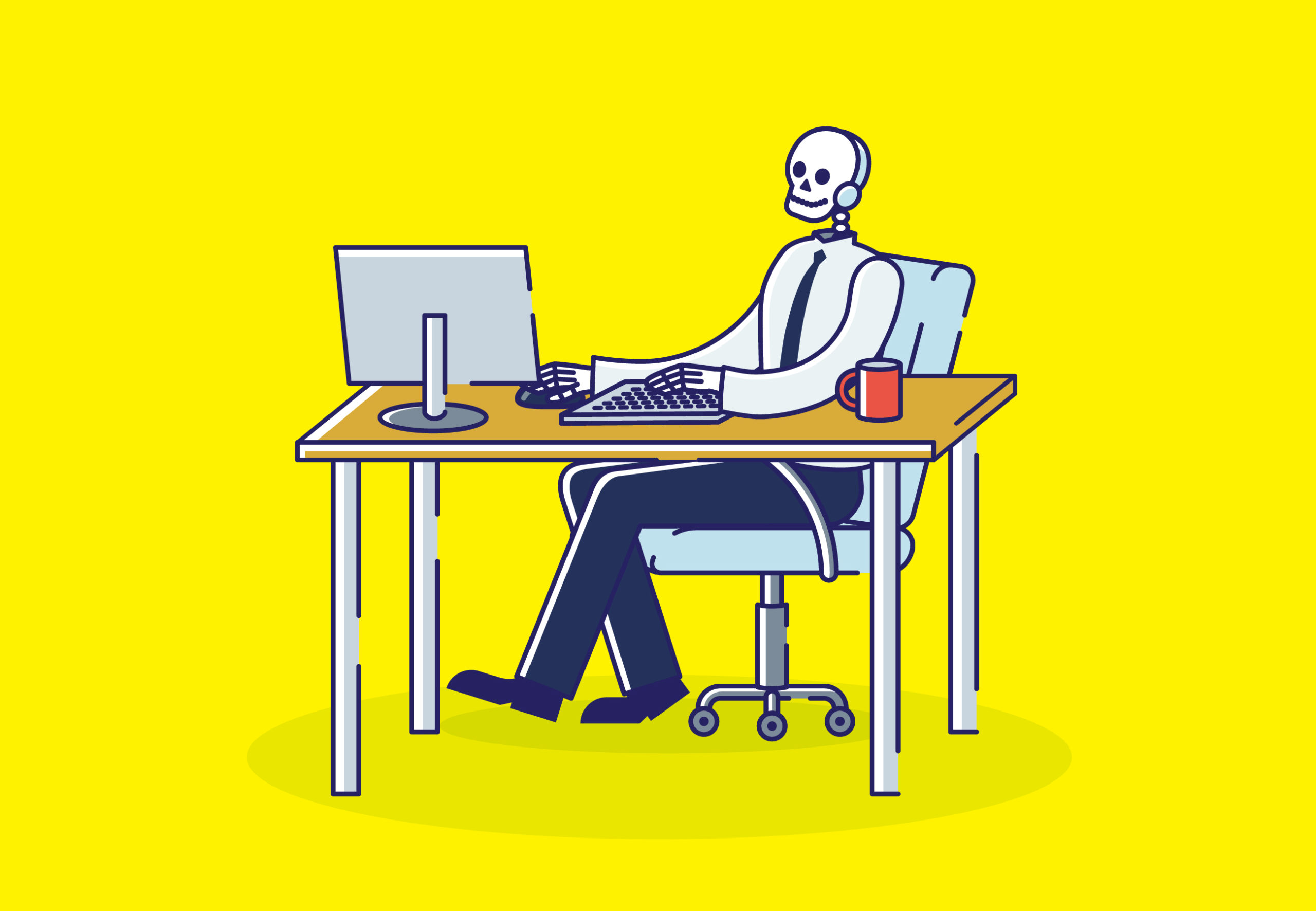If you’re thinking about using a WordPress page builder to create your business’s website, read this article first.
If you’re using a WordPress page builder already, it’s not too late to save yourself.
As of 2023, WordPress powers around 43.2% of websites, and we don’t blame you for wanting to hop on that train. Using a page builder to help build your WordPress website, however, is another thing entirely.
They come with many flaws; if they didn’t, web designers and web developers wouldn’t still be in high demand. And a lot of these faults have an unfortunate effect on the elements that make a good website, including design and content.
The truth is that page builders aren’t utterly evil. They, like most things, have a time and a place – but that place is limited in range and probably not applicable to your business.
What Are WordPress Page Builders?
A web page builder is a plugin or editor that allows anyone to build their own website with minimal effort. This is usually accomplished using themed drag and drop blocks that creators “drop” onto a webpage and fill in with their own copy and imagery.
Sometimes called a WYSIWYG editor, pronounced “wiz-ee-wig,” a page builder gives non-developers the ability to see what the end result of their web page will look like as they build it. WYSIWYG stands for What You See Is What You Get.
But, to the dismay of many website creators out there, not all page builders are as effective and accurate in their pre-published representations as they claim. You also can’t trust the quality of all page builders, and they leave you reliant on the creator for help in the case of an error.
For these reasons, if you intend on using a page builder, you should go with a company that’s sole purpose is providing web development services for non-developers instead of a WordPress WYSIWYG. Options dominating this market include Wix, Shopify and Squarespace. If you’re looking for a drag and drop website builder, these popular sources do it better than the rest and come with decent customer service.
Why People Use Page Builders
The number one reason for using a WordPress drag and drop builder is to create your website without having to learn HTML or programming languages.
If you currently have a website made with a page builder, it’s because:
- You designed the site yourself.
- You worked with a designer that didn’t have web development skills.
- You tried to build a website with a tiny budget.
- You inherited the site from someone who lived through the first three.
Page builders offer an easy solution when you want to knock together a simple website without knowing about the code behind the scenes. It can even work if you’re building a personal website with only a few pages that you don’t intend on personalizing or updating often.
But make sure that is what you want.
When Page Builders Don’t Cut It
Sometimes simplicity comes at a cost.
When you create a website for your business, you’re doing it to help that business, and in a lot of ways, page builders can harm that goal. Some risks that come with committing to a WordPress page builder include:
- Bloated, invalid code
- Slow site speed
- Poor SEO
- Limited design, functionality and content
- Unoriginality
- Wasted time on changes
- Lack of longevity
- Insufficient accessibility
Let’s dive a little deeper, shall we?
The Use of Bloated or Invalid Code
When using HTML page builders, you drag and drop blocks with the elements you desire, and then it fills in the corresponding markup code behind the scenes. The problem is that the code a page builder uses is often bloated, meaning that it’s lengthier or larger than it needs to be.
It’s also not uncommon for page builder code to be dirty and noncompliant, resulting in security threats for your business. Sometimes, they don’t even work equally across all browsers.
When bloating or error does occur, you need knowledge of HTML and code to clean it up – if the page builder provides the option to. If the page builder doesn’t give access to the source code or you don’t have the knowledge needed, there’s nothing you can do to fix it.
Killing SEO and Growth
Why should you care about bloated code as long as your site looks great?
Messy code is bad for search engine optimization (SEO) because search engines, like Google, use a page’s code to understand its content. With invalid, bloated or error-ridden code, your site will show up in search results less often, and fewer people will find it.
Excessive HTML markup also results in slower page loading speeds. There are many reasons why site speed score matters, including that slow speeds are bad for SEO and turn away leads.
So page builders can help you save on web development now, but they can hurt your business growth and bottom line down the road.
Limiting Design and Content
If branding matters to you, page builders probably aren’t the answer. This is because even if you find a page builder with great code, you only have access to the block styles the page builder comes with, and you lose a significant amount of control over the design of your website.
One page builder claims to come with “Advanced graphics tools like shapes, textart, rotation, shadows and many other image effects.” This sounds more like a bad middle school PowerPoint.
With less control over design and structure, you also have limited say in how your website’s information architecture affects your user experience. And page builders don’t have every feature built in, limiting your website’s, and therefore business’s, functionality.
A good web developer could fix these, but many site builders don’t provide access to the code for editing. Of those that do, most only allow you to add code to what they have set in stone.
It’s also worth considering the unoriginality of free themes and page builder designs. If every business using a page builder is subject to the same options, how will you create a website that stands out?
Another complaint by many web designers is that a page builder hurts the design process by putting all elements into one individual’s hands. Design and development roles become one even though web design and development are two separate specialties. The way form builders function also encourages users to focus too much on style, leaving content and copy to suffer.
Lost Code Access Is Lost Time
When you don’t have access to your website’s code, you lose control over more than design. You lose control of your source and database files too. What does this mean?
It means that updates you could do all at once you’ll have to do one by one, like configuring redirects or editing an element that exists on several pages.
So you can save time by not learning the HTML and code in the beginning, but you might waste any time saved on the inefficiency of page builders.
They Aren’t Built for Longevity
Different businesses have different needs, and they change over time; you should have the ability to adapt your website and code to meet these needs.
WordPress builders don’t allow you to evolve to meet new expectations until the builder updates or upgrades. When creating your website, you can’t guarantee that the builder you use will keep up with advancements in technology.
Longevity also becomes an issue because the creators of page builders have to update them to coincide with WordPress updates. Otherwise, parts of your website may start malfunctioning anytime WordPress updates.
You can also become dependent on a page builder because if you decide to deactivate the plugin or theme, chunks of your website code go missing.
No Control Over Usability and Accessibility
Usability and accessibility are essential qualities of every product, including your website.
Usability deals with how easy and pleasant it is for your users to accomplish tasks on your website in any given context. One such context is when a user visits your website on a mobile device. In this case, incorporating responsive web design plays a crucial role in maintaining your site’s usability. Unfortunately, not all page builders work the way they promise on different devices. They also, as discussed, can cause slow loading speeds. This downgrades the user experience and becomes a usability problem.
Accessibility is a subsegment of usability. It ensures that everyone, including people with disabilities, can access and use your website. For some company websites, accessibility is a legal requirement under the Americans With Disabilities Act (ADA).
You lose control over website accessibility and the ability to create accessible design for users with disabilities when you use page builders.
If You’re Going to Use WordPress, Do It Right
The point is that if you’re going to do WordPress, do it right. Doing it right takes knowledge of web design and web development. It includes an understanding of HTML markup and coding languages. Doing it right is a lot of work, but it guarantees a fast, effective and future-proofed website customized to your brand, business and goals.
If you don’t have the time to do the work, a web design agency will – without the compromises made with page builders.
Besides, to support page builders now is to hinder the development of better tools for non-developers in the meantime.



